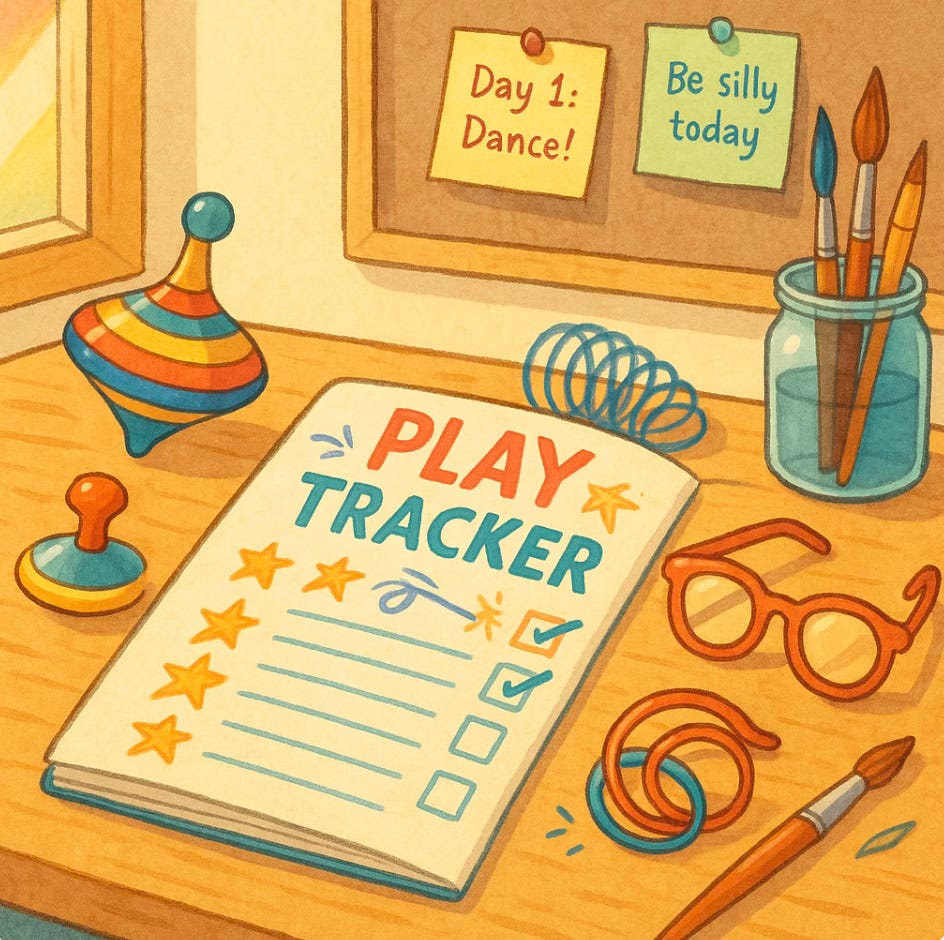Somewhere along the way, we turned aging into a solemn affair.
As if the reward for surviving midlife was the right to finally behave. No more impulsiveness. No more dancing like a lunatic in the kitchen. No more bad karaoke, goofy hats, impromptu road trips, or jokes that made teenagers groan and spouses raise eyebrows. Just fiber supplements, walking shoes, and an orthopedic pillow.
Respectable. Responsible. Predictable.
And yet, if you peek inside your brain’s biology, that’s not what it wants. It doesn’t want to be admired. It wants to play.
Because play isn’t a distraction from aging well, it’s one of the deepest biological antidotes to decline.
Your brain craves novelty, not just safety
Let’s get nerdy for a moment.
Neuroscientist Jaak Panksepp (the guy who proved rats laugh when tickled—true story) identified play as one of the brain’s primary emotional systems. Not optional. Not childish. Primary. Like fear or rage.
And what does play do?
It activates neuroplasticity, the brain’s ability to rewire itself. It strengthens the prefrontal cortex. It improves emotional regulation, social intelligence, and creative problem-solving. Play actually buffers your brain from stress, depression, and even neurodegeneration.
In short, if you're not regularly doing something that feels pointless but joyful, your brain is aging faster than it needs to.
Old dogs can learn new tricks, if the tricks are fun.
In one study, older adults who learned juggling showed increases in gray matter density in just a few weeks. (Yes, juggling.) Other studies show boosts in memory and executive function from things like improv classes, dance, laughter yoga, or even video games, when approached with curiosity and playfulness.
The key isn’t just doing something new. It’s doing something novel, enjoyable, and low-stakes. Play, by definition, is intrinsically motivated and non-outcome-driven. Which is exactly what makes it powerful.
Compare that to modern aging culture, where everything is optimized, measured, and tracked.
You don’t have to “win” at pickleball. Just swing the paddle and laugh when you miss.
But what will people think?
This is the invisible habit-killer: the fear of looking ridiculous.
Especially for women, aging has been sold as a narrowing of expression. Don’t be too loud. Don’t be too colorful. Don’t take up too much space.
Here’s your permission slip: Be ridiculous. Wear the sparkly jacket. Sing out loud. Take the painting class, the ukulele lesson, the salsa workshop.
Aging gracefully is fine.
But aging playfully? That’s how you stay alive inside.
How to build the habit of play
This isn’t about adding more to your to-do list. This is about sneaking joy back into your default settings. A few micro habits to try:
The 2-Minute Silly Rule: When you're feeling stuck, overwhelmed, or tired, set a 2-minute timer and do something playfully absurd. Dance. Doodle. Speak in a bad accent. Don’t overthink it.
Reclaim a childhood joy: What did you love as a kid before anyone told you it was impractical? Revive it in grown-up form. Roller skating? Sticker books? Building things? They're not juvenile—they’re neuroprotective.
Schedule unstructured time: Not relaxation. Not rest. Actual play. Block 30 minutes and call it “Recess.” No productivity allowed.
Join playful people: Laughter is social glue. Find a walking group that tells stories, or join a meetup for beginners doing something absurd and new.
The point isn’t to stay young
The point is to stay light.
Play is what keeps you open. Flexible. Curious. It makes you more adaptable. More creative. More human.
So the next time someone tells you to age gracefully, smile kindly.
Then go climb something, laugh too loud, and color outside the lines.
Want to Stay Playful on Purpose?
Inside the Habit Healers Mindset’s Inner Circle, you’ll get exclusive tools to transform joyful moments into sustainable habits, starting with the
FREE 10-Day Play Challenge Tracker below.
This amusing guide gives you:
A neuroscience-backed habit to try each day
A short explanation of why it works (no fluff, all brain-boosting science)
A playful daily reflection prompt to rewire your mindset
It’s not just about having fun, it’s about building a brain that stays curious, creative, and sharp well into your later years.
Inner Circle members get instant access to this tracker and dozens of habit tools, weekly mindset guides, and new content that never makes it to the free feed.
Because joy is not just an emotion, it’s a skill.
Join the Inner Circle now and get the tracker





